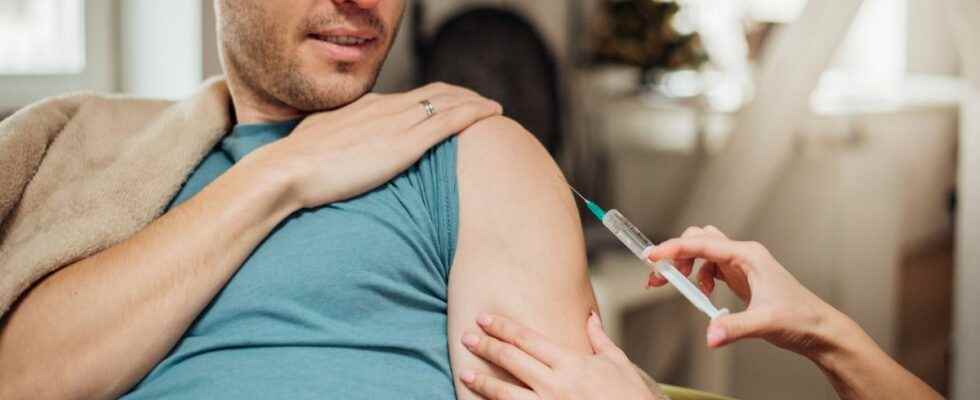Published on
Updated
Reading 1 min.
The High Authority for Health recommends the opening of vaccination against monkey pox to populations at risk, in particular men who have sex with men and who have multiple partners. We take stock of this announcement with Gérald Kierzek, emergency doctor and medical director of Doctissimo.
On July 8, the High Authority for Health (HAS) issued its opinion on preventive vaccination against monkeypox, for populations at risk.
Vaccinating offered to the most exposed groups
While vaccination was until now carried out post-exposure for contact cases, HAS now recommends offering preventive vaccination to the groups most exposed to the virus: “lmen who have sex with men and trans people who have multiple partners, people in a situation of prostitution, professionals working in places of sexual consumption“.
The HAS does not forget the caregivers and indicates “that it can be considered on a case-by-case basis for professionals who have to take care of sick people”. A recommendation shared by the Ministry of Health, because indeed, “the disease affects in 99% of cases men who have sex with men or who have multiple partners” recalls Dr Gérald Kierzek.
A vaccine known for a long time
The vaccine used against monkeypox is the same as that for classical smallpox. For Dr Gérald Kierzek, “it is a vaccine known for a long time, it is safe: remember that we vaccinated against smallpox until the 1980s”.
Today, it is a 3rd generation vaccine that does not contain smallpox virus, and to obtain a complete vaccination schedule, it is necessary to receive two doses 28 days apart, it can be up to three in certain special cases, such as immunocompromised people, for example. There remains the question of the availability of doses: will there be enough of them for all the people concerned?
Remember that a few weeks ago Europe ordered around 100,000 doses of vaccine, an insufficient number to vaccinate all those who need it.
